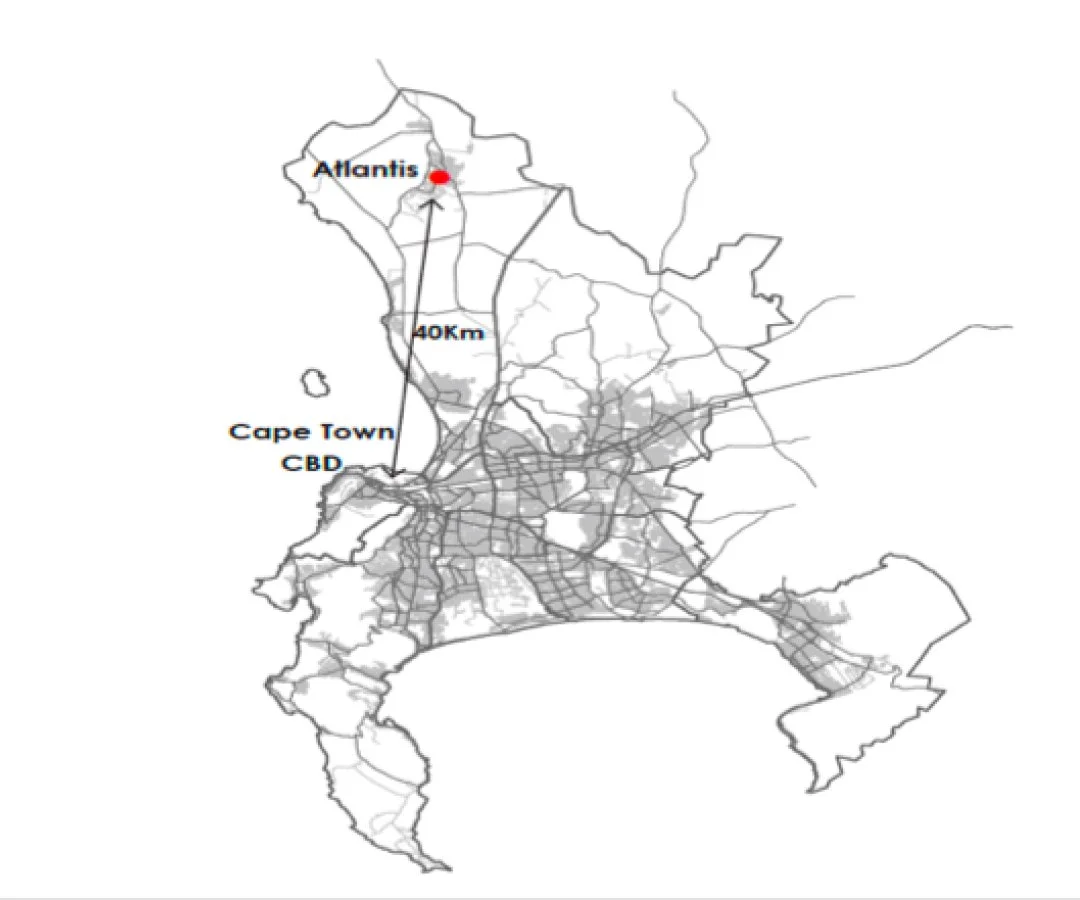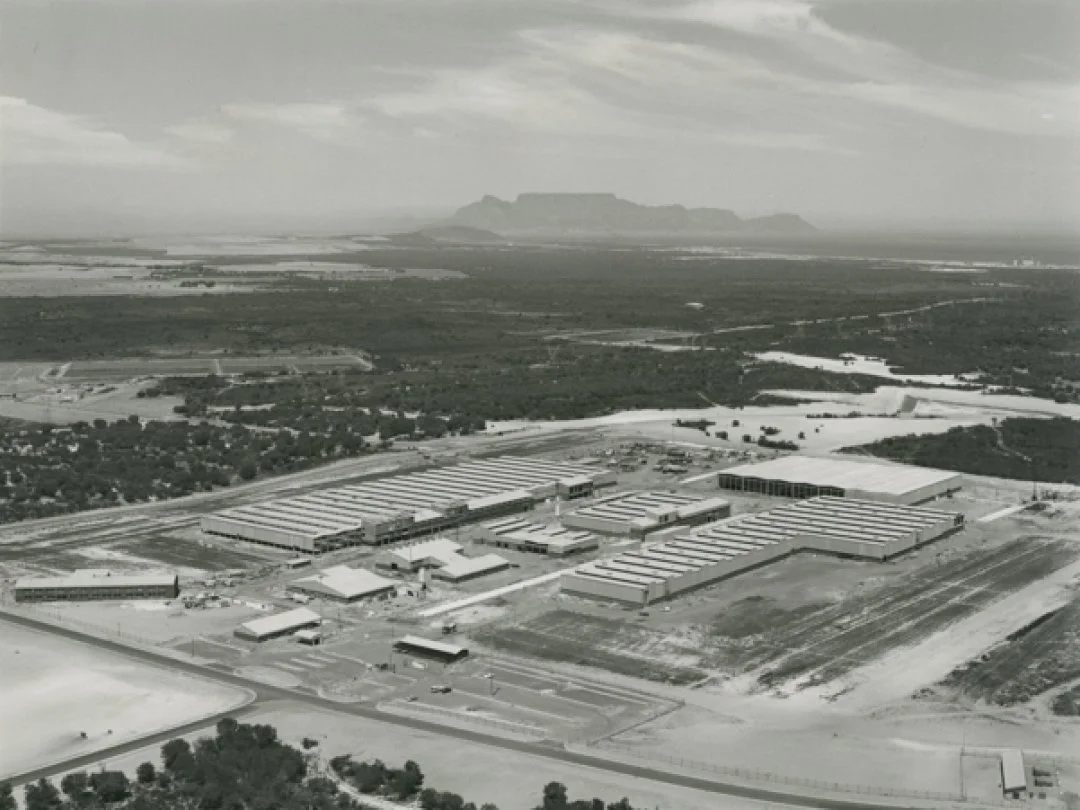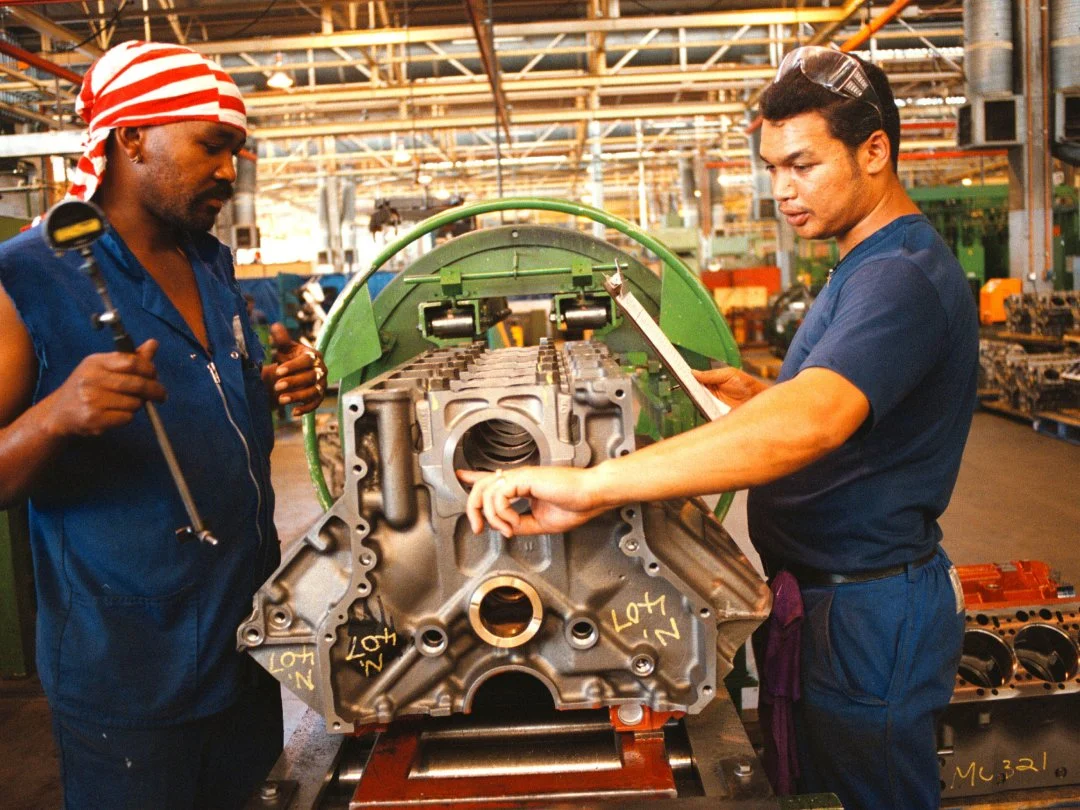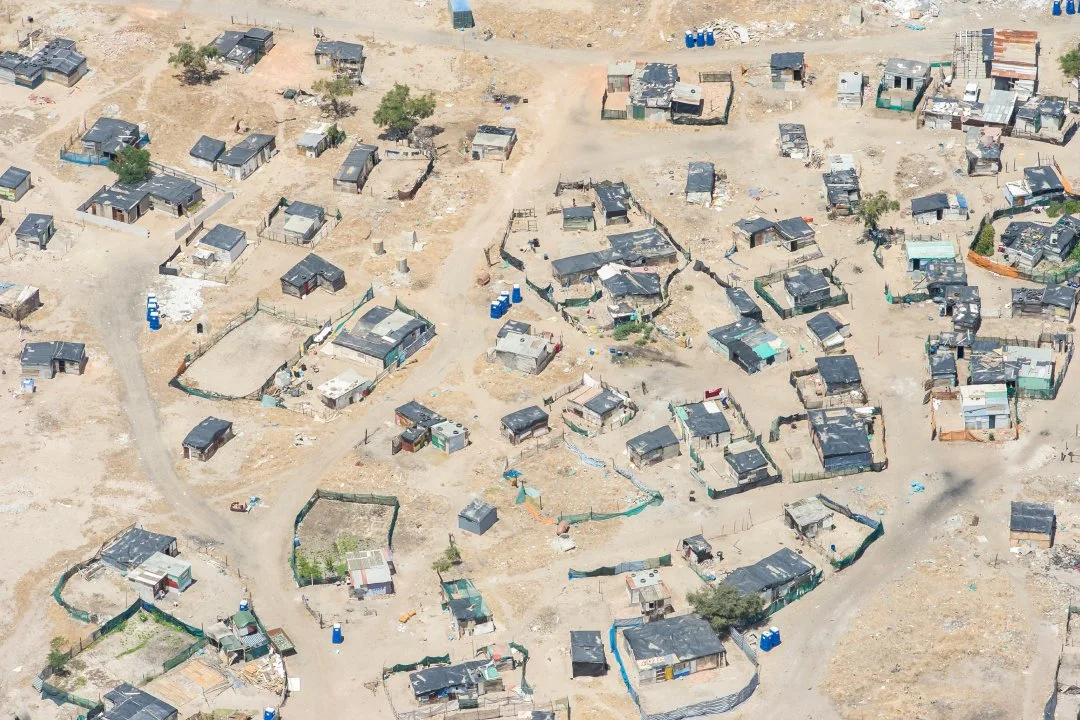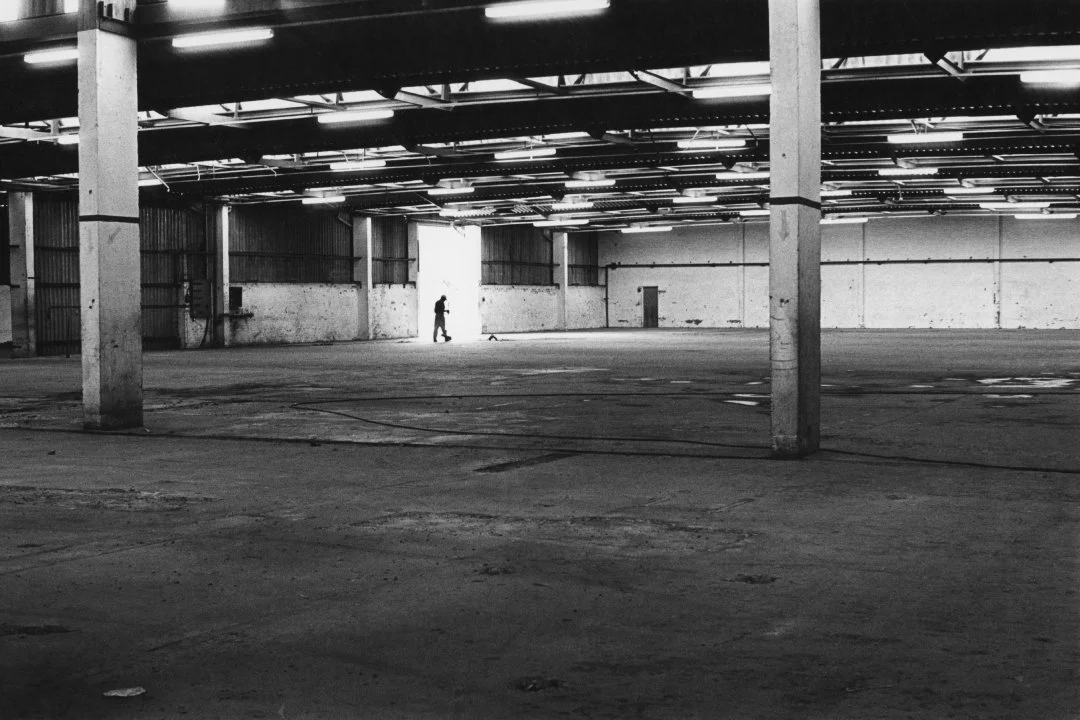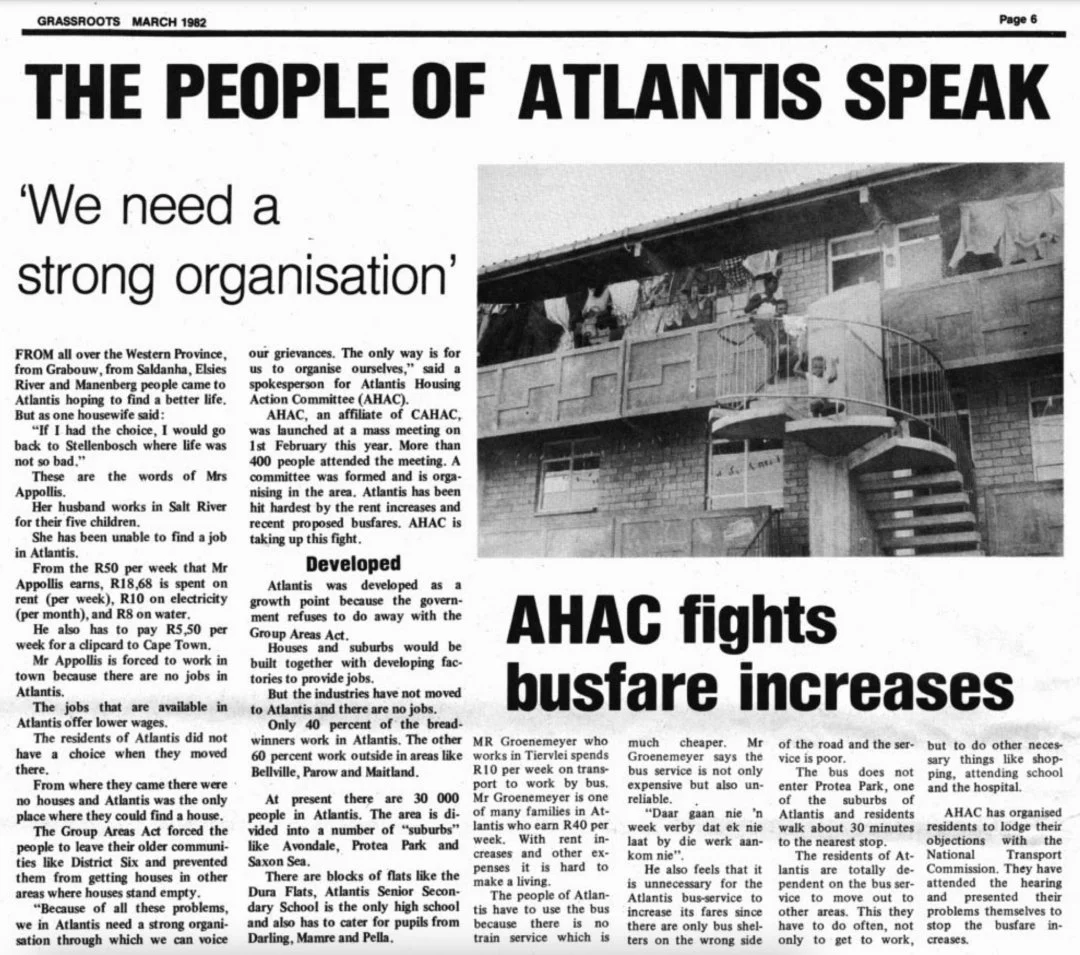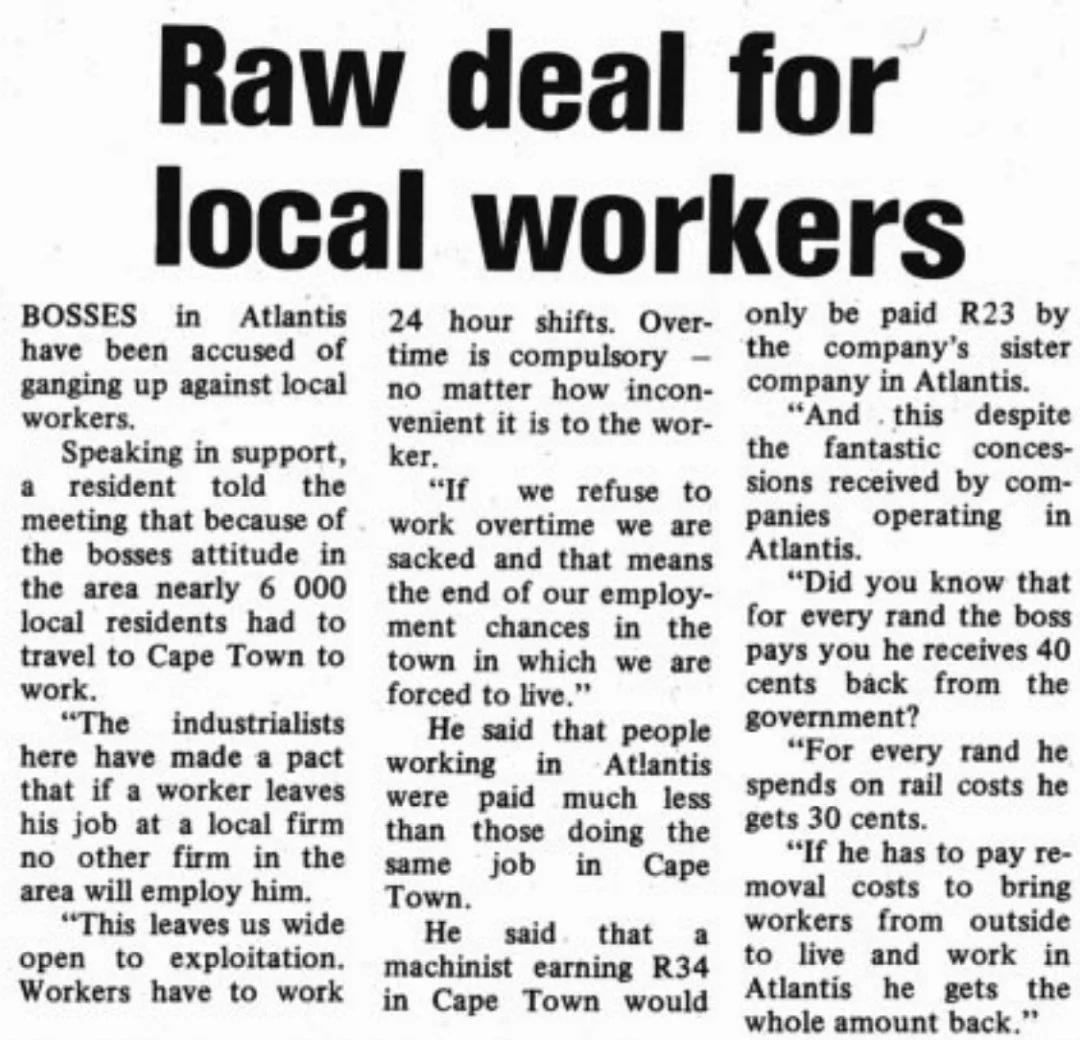“Bruin Droomstad” (Coloured dream-city) - The Story of Atlantis
Image: African News Agency/ANA.
Image: Atlantis Scoping Study Report: City of Cape Town Safe Cities Programme.
Atlantis - the result of apartheid spatial planning
Atlantis was created in the early 1970s as “model industrial node” within the framework of apartheid spatial development policies. These policies were designed to physically separate and divide South Africans along racial lines.
Atlantis was developed for people designated as ‘coloured’ under apartheid law and was situated 45 km north of Cape Town – far from the city centre where most of the jobs were in those days.
The huge, moving sand dunes near the proposed development of Atlantis. Image: African News Agency/ANA.
City in the Sand
Before 1973, this area was characterised by sand dunes and not much else.
In order to attract people to this new town, people were promised housing and jobs.
People designated as ‘coloured’ who had been displaced from various areas of Cape Town during forced removals, or who wanted to escape overcrowded conditions in areas they were living, came to Atlantis in the hope for a better life.
First houses built in Atlantis with Cape Town in the far distance. Image: African News Agency/ANA.
Altantis – “ver van die Kaap”
The population of Atlantis grew from 0 in 1973 to 30 000 in the 80s and to just over 67 000 in 2011 (latest census results).
A major issue for those moving to Atlantis was its complete isolation from the rest of Cape Town.
“Ek het nou ‘n huis gekry in Atlantis en dit is baie ver. Ek wil nie soontoe trek nie want dit is ver van my mense en werk. Wat kan ek maak. Ek moet gaan vir ‘n dak, dis al hoop vir my. Ek wil weet hoekom hul ‘n township so ver van die Kaap gebou het.”
C. Samuels, Grassroots, October 1980.
Sign posts showing companies with business interests in Atlantis during the construction of the city. Image: Western Cape Museum Service.
Economic development – the early years
Atlantis’s success as an industrial node to provide jobs to attract ‘coloured’ people to the town, depended on huge government support. The government invested approximately R1,5 billion in the project.
To attract businesses, it offered incentives such as low-cost loans for land purchases and buildings, a reduction in company taxes, grants for relocation costs, railway discounts and housing for staff.
Arial view of Atlantis Diesel Engine Factory. Image: African News Agency/ANA.
Businesses attracted by government incentives
More than 100 companies made use of the incentives to relocate to Atlantis. Particularly common were light industrial and manufacturing industries that could easily relocate without substantial investment.
The biggest employer, Atlantis Diesel Engine (ADE), was established in 1979 and employed more than 2 300 people.
Factory workers in Atlantis. Image: Eric Miller/Africa Media Online.
Slow industrial development affects job creation
Despite government incentives, industrial development was very slow. There were simply not enough companies to employ all the people who had moved to Atlantis looking for work. This resulted in a high unemployment rate.
In addition, the 100 factories that were established created mainly lower paid jobs. Many people still had to commute to Cape Town for work using a large portion of their salary on transport. There was no commuter rail at the time so transport costs were high.
Some of the first houses built in Atlantis. Image: African News Agency/ANA.
Housing in Atlantis
People were not just promised jobs in Atlantis, they were also promised housing.
Avondale was the first of the six suburbs to be developed followed by Saxonsea, Protea Park, Robinvale, Beacon Hill and Sherwood.
Before 1980, home ownership was not allowed. Instead, flats or semi-detached units were rented from the Divisional Council. Those who could not afford the rent were evicted and priority was given to people who already worked in Atlantis.
Council housing in Atlantis. Image: Chris Ledochowski/Africa Media Online.
Poor quality housing
The quality of the council houses was poor. They were badly designed with poor ventilation. Walls were moist with condensation in the mornings and mold became a major problem.
Atlantis was also known as the “gogga-dorp” as bugs liked to breed in the ash bricks used to build the houses.
Lamenting the lack of services “Hier in Atlantis bly ons in die bos” (“Here in Atlantis we stay in the bush”), Grassroots newspaper, March 1982.
Lack of facilities - Atlantis maak you flenters!
Facilities such as creches, schools, shops and health care were also lacking when people first moved to Atlantis. This added to the hardship experienced by people who had moved to this town “in die bos” (in the bush).
By 1980, Atlantis had only a small number of shops and commercial enterprises. Besides houses and factories, there were no banks, post offices, supermarkets or bakeries. Residents had to collect their post in Mamre, five kilometres from Atlantis.
Witsand informal settlement. Image: Peter Chadwick/Africa Media Online.
Witsand Informal Settlement
The influx of Black African migrants, largely from the Eastern Cape, led to the development of the informal settlement of Witsand on the outskirts of east Atlantis. The first dwellings were put up in the 1980s.
Due to apartheid legislation, only people designated as ‘coloured’ could live in Atlantis. Until 1990, Black Africans were not allowed to live in Atlantis and were only allowed to work there. Factory owners were also denied the right to apply for them to stay on the factory premises.
With time, people who were allowed to live in Atlantis, but could not afford the rent, also moved to Witsand.
Empty factory in Atlantis in 1987. Image: Chris Ledochowski/Africa Media Online.
Atlantis in the 80s…deeper economic troubles
The situation in Atlantis worsened in the 1980s due to the global economic crises. International sanctions to put pressure on the South African state to end apartheid also caused many international companies and investors to leave the country.
The final straw was when the government incentive schemes for businesses in Atlantis ceased in 1989. More than a third of the manufacturing jobs generated were lost.
Retrenched Charmaine van Wyk, foreground, stands with a friend on the stairs of their Atlantis council block: " If you can't get work, how can you pay rent?", 1985. Image: African News Agency/ANA.
Hardship and suffering
High unemployment rates and deepening poverty caused many families to face evictions.
Families face evictions in Atlantis, Grassroots newspaper, December 1985.
In the words of the people…
“Every day you see new people looking for work. Many others have given up. They don’t go out any more because there is just no work.”
- Noel Williams, Chairperson of Atlantis Residents Association
“Nie een van ons het gevra om hier to kom woon nie. Ek bly hier vir nege jaar. Die boere het ons belas met probleme. Ek kan nie meer snags slaap nie. As ons uitgesit word, waar gaan ons met ons kinders? Die tyd het angebreek dat ons moet saamstaan. In die woorde van Nelson Mandela, we must fight for our rights.”
- Charles Neelse
(From Grassroots newspaper, April 1985)
Formation of the Atlantis Housing Action Committee, Grassroots newspaper, March 1982.
The Atlantis Residents Association takes action, Grassroots newspaper, March 1985.
The people of Atlantis stand together and mobilise
“Ons moet een woord praat en een pad stap”
– Resident of Atlantis
There was an urgent need for a strong organisation to address the many needs of the Atlantis community ranging from bus-fare increases, the threat of evictions, high food prices and unemployment.
This led to the establishment of community organisations such as the Atlantis Residents Housing Action Committee, the Atlantis Residents Association and the Atlantis Women’s Organisation in the 1980s.
People working in Atlantis were being paid less than those doing the same job in Cape Town, Grassroots newspaper, June 1981.
Labour unions in Atlantis
As all over South Africa, in Atlantis the unions were also involved in the fight against poverty and the injustice of apartheid laws.
In particular, unions addressed the lower wages being received by workers in Atlantis compared to workers in Cape Town. When they became aware of the incentives received by companies in Atlantis, they demanded that these incentives be reflected in a similar rise in wages for workers.
Image: Western Cape Museum Service.
Atlantis in the 1990s and into the 20th century
Unemployment hit a peak of about 40 percent by 1992. The circumstances did not change after the first democratic elections held in 1994. In fact, living conditions continued to worsen.
The global economic crisis of 2008-2009 led to a second wave of economic difficulties. Within a span of 18 months, more than 10 factories closed down.
Image: African News Agency.
Atlantis today – great potential but a city challenged by crime and gangsterism
Today, Atlantis boasts a shopping centre, active entrepreneurial activity, transport infrastructure, and four high schools that have produced many talented individuals. Its greatest asset remains its passionate and committed people.
However, the legacy of poverty and unemployment has made Atlantis ‘notorious’ for its high levels of crime and gangsterism.
“The Lost City of Atlantis – so many flavours, so much talent, so many personalities, so much potential, but only recognized for crime.”
Monique Hanson, journalist from Atlantis.
Hisense Factory in Atlantis. Image: Hisense.
Atlantis - Lost city rising again
The will and passion of the community, new government, business investments and significant infrastructure upgrades have nevertheless created renewed hope for Atlantis.
In 2013, the industrial area which was established in the 1970s, gained new life with the establishment of new large businesses such as Tellumat Electronic Manufacturing and Hisense electronics factories.
“To the people of Atlantis, this factory brings hope that the burden of poverty and unemployment that ravaged the people of this area for years can be reversed”.
Ebrahim Patel, Minister of Economic Development at the official opening of Hisense.
Image: Western Cape Government.
The future of Atlantis is looking bright - and green
In December 2018, the Atlantis Special Economic Zone (SEZ) for Green Technologies was officially launched by President Cyril Ramaphosa.
This zone is dedicated to the manufacturing and provision of services in the green technology space. Wind turbines, solar panels, biofuels, electric vehicles, materials recycling and green building materials are all examples of initiatives that could find a place here in the future.
It is expected to attract R3,7 billion in investments over the next 20 years.
Image: Western Cape Museum Service.
Voices from Atlantis …
We asked some of the residents of Atlantis about their views and hopes for Atlantis.
“As part of the younger generation I am proud to be a part of Atlantis. I believe there is huge potential for growth and expanding…The most positive thing happening in Atlantis right now is that individuals are taking a stand to make changes within Atlantis”.
- Elfino, 23, resident of Atlantis and member of Rotaract.
Image: Atlantis Business Chamber.
“Atlantis is a good place and many positive things happen here, but then there are many bad things also going on. Like gangsterism, abuse, rape, murders etc. …Community projects happen all the time and this is good for the community. What I would love to change is the young people’s mindset as they think that gangsterism is the way to go.” -
Melisaa Scheepers, 24, resident of Atlantis, working in school management.
Image: Western Cape Museum Service.
“Right now the sense of community is great. Corona has pulled many people together. The older folk is a strength in our communities as they keep many in line…. Our children need these pillars in the communities, as they need direction.
There some good initiatives being run, but it does not always continue and is not sustained, so the value is lost. Our politicians must become more active in the daily living of our people. We can’t just see them when it is elections.”
- Wayne, 56, entrepreneur and pastor based in Atlantis.
Image: Western Cape Museum Service.
“Atlantis is the best place for me to be in, although we have good and bad happen here, I still feel I can build a future here and strive to become a better person… We as a community always stand beside one another in times of crime.”
- Jenny-Lee Fielies, 22, resident of Atlantis.
Image: Western Cape Museum Service.
“My whole family live here, so this is my hometown and I love it. I with my friends will try to make a difference. We want a better life so we talk about many things we want to do here.
All my friends, we love to play soccer and we play anywhere, but sometimes it is not safe here. We must protect ourselves.”
- Bevan, 16, learner from Atlantis.
Image: Western Cape Museum Service.
“I have built my life and business here in Atlantis. My 2 kids also live and work in Atlantis. We have a well balanced life here, although we dream of many positive changes. We will never stop believing that things will improve around us as we can be a part of that change.”
- Wayne, 56, entrepreneur and pastor based in Atlantis.
“People here don’t give up, they try to work things out. Even the children, they can be difficult, but you can see they also want to be better. The churches and masjied and all other religions, they must also help the people more, because we can’t depend on our government. The schools are very good, as they help with feeding, but they struggle with money.”
- Mymoena, 43, fruit and vegetable vendor from Atlantis.
Image: Western Cape Museum Service.
“For a person living in Atlantis for the past 40 years, I feel life is still a challenge due to gang violence and unemployment. I think Atlantis will still grow from strength to strength if we as a community get involved to motivate our youth to further their studies.”
- Nico Wagenstroom, 64, member of Rotary Club Atlantis.
Image: Western Cape Museum Service.
“Atlantis has been my home for almost 35 years. I love my city. I’ve seen a lot of positive things and growth over the years. I’ve seen the devastating effects of poverty but I’ve also seen a lot of good people trying to make a difference. I’ve seen young people at their wits end but I’ve also seen those who’ve risen above their circumstances.”
- Moira Mentoor, 55, a teacher from Atlantis.
Special thanks goes to the Atlantis Chamber of Commerce and Industry without whom this exhibition would not have been possible.
References:
Exhibition on Atlantis created in 2015 by the Western Cape Department of Cultural Affairs and Sport (DCAS).
Grassroots Newspaper Articles on Atlantis: 1980 – 1988.
Atlantis Scoping Study Report: City of Cape Town Safe Cities Programme - Part of the UN Women – Safe Cities Free of Violence Against women and Girls – Global Programme (2016)
"The Bubble of Atlantis" by Monique Hansen, International Congress of Youth Voices website
https://www.internationalcongressofyouthvoices.com/monique-hansen
"New factory to stimulate job creation for W Cape youth", South African Government News Agency website
https://www.sanews.gov.za/south-africa/new-factory-stimulate-job-creation-w-cape-youth
Invest Cape Town website


